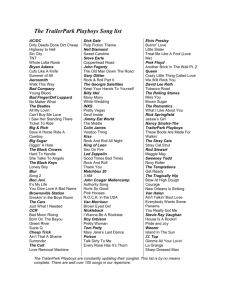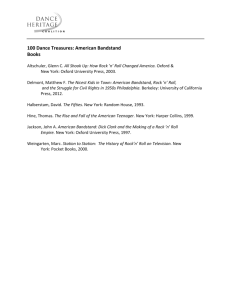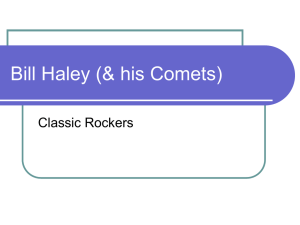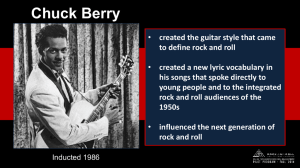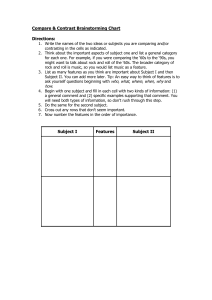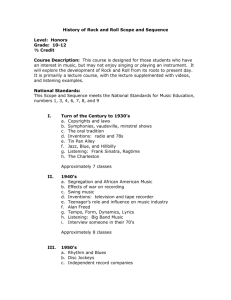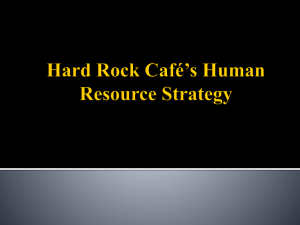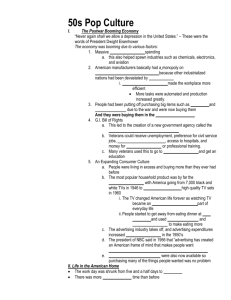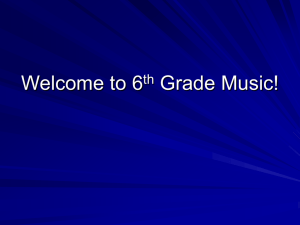1950s
advertisement
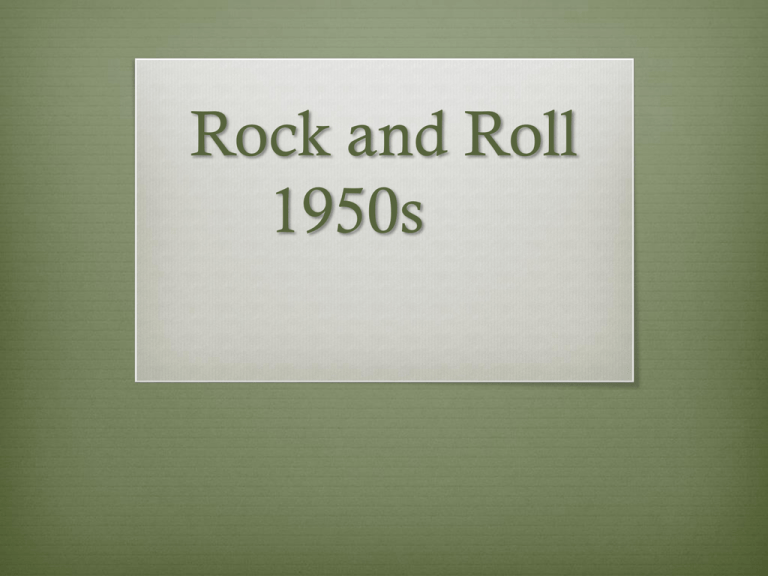
Rock and Roll 1950s Gospel and the Birth of Soul Fusion of West African musical traditions The experience of slavery Christian practices Life in the American South The Great Migration transported thousands of African Americans from the South to Northern cities Gospel’s profound influence on secular music We listened to this earlier in the semester with Sam Cooke’s “Loveable and “Wonderful” Gospel’s rich vocal harmonies such as the Jordanaires and the Golden Gate Quartet Influenced Girl Groups of the late 50s and early 60s to Frankie Valli and the Four Seasons, Elvis, etc. Basic Elements of Gospel Call-and-response Complex rhythms Group singing Rhythmic instrumentation Other musical genres took elements of Gospel to create new sounds Listening and Analyzing Southern Tones, “It Must Be Jesus” (1954) What is the central message of the song? Who is the key figure? Ray Charles, “I Got a Woman” (1954) Identify the key figure mentioned Does it remind you of any song you have heard on the radio? Kanye West’s, “Gold Digger” How are these songs similar, dissimilar, what has changed? How has the central figure changed? How is the overall meaning different? What does sampling Ray Charles’s song do to West’s song? Song Comparisons “Wonderful” Sam Cooke (1959) Elvis Presley with the Jordanaires, “Too Much” Sister Rosetta Tharpe, “Didn’t It Rain” and Little Richard, “Tutti Frutti” (1957) Song Analysis Songs are like portals that help you to see the world: social, cultural, political Personal emotional response to music Questions of Ethnomusicology: song structure, instrumentation, etc. Frameworks to understanding Listening and analysis: Questions of Ethnomusicology Timeline: placing song in historical context Rock and Roll as a visual culture Rock and Roll as Performance Rock and Roll as a literary form The music industry and technology associated with Rock and Roll Chuck Berry “Johnny B. Good” Instrumentation, Mood, Production, Tempo, Lyrics, Sounds like Class Discussion using Questions of Ethnomusicology iPad Chuck Berry Timeline Billboard Chart from Wk 22 1958 Buddy Holly, “Rave On” Sheb Wooley, “The Purple People Eater” Wanda Jackson National Guard called into Central HS in Little Rock, Arkansas, 1957 American Bandstand, joins ABC Disneyland opens 1955 Pre-Civil Rights era Berry was an African-American performer whose audience was significantly white American Bandstand on ABC in 1957 brought the artists to a wider audience Record labels such as Chess records in Chicago: Blues and R&B helped bring difference races together through music Visual side of Rock and Roll Elvis Beatles Lady Gaga Fashion, photographic and cinematic presentation Berry was being pitched to a teenage audience African-American representation in film, theatre and radio Performance The artist The stage set Choreography Lighting Venue Fans Culture of the music being presented Rock&Roll as a Literary Form Songwriting Narrative Storytelling Identify five images that seem key to propelling the story it contains Technology and Rock&Roll How the music is delivered: record, radio, TV, iPod, etc. Multi-track recording Chess Records: Chicago Phil and Leonard Chess Independent record label Major labels of the time: sun Imperial, Atlantic, King Billboard Charts Dates back to 1936 Tracks Best Sellers in Stores Most Played by Jockeys Most Played in Jukeboxes Buddy Holly Born in Lubbock, Texas in 1936 Called the, “single most influential creative force in early rock and roll” Inspired the Beatles, The Rolling Stones, Bob Dylan, Elvis Costello, among many others Incorporated rockabilly in his music Formed the band The Crickets Signed to Decca records The Day the Music Died February 3, 1959 Buddy Holly was killed in a plane crash along with Ritchie Valens and J.P. “The Big Bopper” Richardson Referenced in the song, “American Pie” by Don McLean
